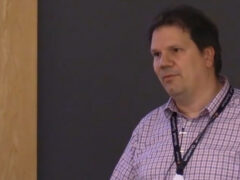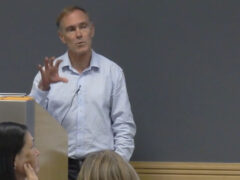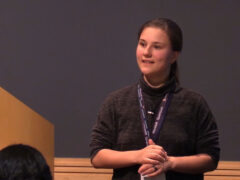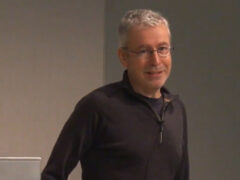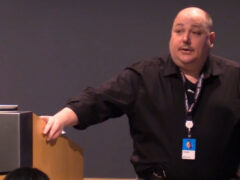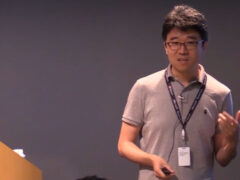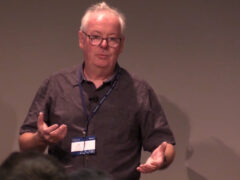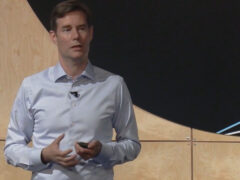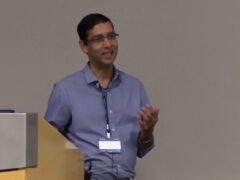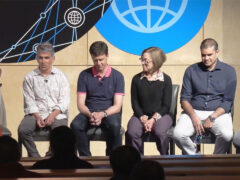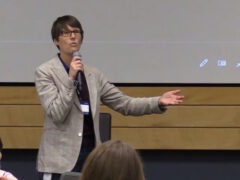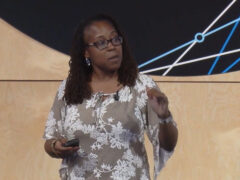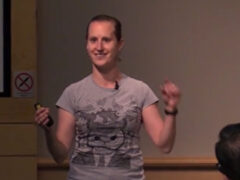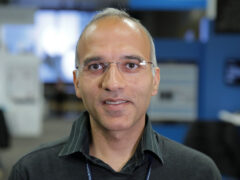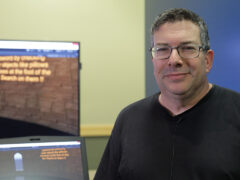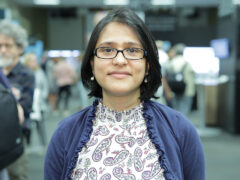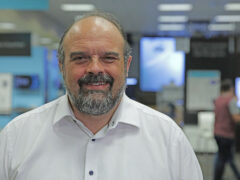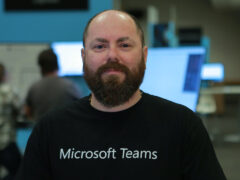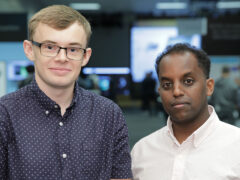Efficiently Verifying Outsourced Cloud Computation: from Theory to Practice
The growth of cloud computing contributes to a desire to outsource computing from a client device to an online service. However, the client should be able to efficiently verify the correctness of the results returned, to guard against malicious or malfunctioning services.
The speakers in this session of the 2013 Microsoft Research Faculty Summit have each built a different system for verifying arbitrary outsourced computations. Each draws on a different strand of theory and applies different cryptographic and system-engineering techniques. Collectively, their efforts have brought the cost of verification down by over 20 orders of magnitude in the last three years, making verifiable computation close to practical for a variety of applications.
Speaker Details
Bryan Parno is a researcher in Microsoft Research’s Security and Privacy Research Group. He received his PhD and Master’s degrees at Carnegie Mellon University, where he was advised by Adrian Perrig, and a Bachelor’s degree from Harvard University. His current work focuses on the foundations of trust on modern computers. His research interests include computer security, systems, networks, and applied cryptography. In his spare time, he enjoys photography and volunteering as an Emergency Medical Technician.
Michael Mitzenmacher is a professor of Computer Science in the School of Engineering and Applied Sciences at Harvard University. Michael has authored or co-authored more than 150 conference and journal publications on a variety of topics, including algorithms for the Internet, efficient hash-based data structures, erasure and error-correcting codes, power laws, and compression. His work on low-density parity-check codes shared the 2002 Institute of Electrical and Electronics Engineers (IEEE) Information Theory Society Best Paper Award and won the 2009 ACM SIGCOMM Test of Time Award. His textbook on randomized algorithms and probabilistic techniques in computer science was published in 2005 by Cambridge University Press. Mitzenmacher graduated summa cum laude with a B.A. in mathematics and computer science from Harvard in 1991. After studying mathematics for a year in Cambridge, England, on the Churchill Scholarship, he obtained his Ph. D. in computer science at the University of California, Berkeley, in 1996. He then worked at Digital Systems Research Center until joining the Harvard University faculty in 1999.
Michael Walfish is an assistant professor in the Computer Science Department at the University of Texas (UT) at Austin. His research interests are in systems, security, and networking. He has worked on untrusted computation, untrusted storage, untrusted networking, failure detection in distributed systems, denial-of-service defense, verifiable auctions, and network architecture. His honors include an Air Force Young Investigator Award, an NSF CAREER Award, a Sloan Research Fellowship, a Teaching Excellence Award from the UT College of Natural Sciences, the Intel Early Career Faculty Honor Program, and the UT Society for Teaching Excellence. He received his B.A. from Harvard and his Ph.D. from the Massachusetts Institute of Technology, both in Computer Science.
- Date:
- Speakers:
- Bryan Parno, Michael Mitzenmacher, and Michael Walfish
- Affiliation:
- Microsoft Research, Computer Science, The University of Texas at Austin
-
-
Bryan Parno
-
Jeff Running
-
-
Series: Microsoft Research Faculty Summit
-
-
Quantum Computing and Workforce, Curriculum, and Application Development: Case study
Speakers:- Krysta M. Svore,
- Martin Roetteler
-
-
-
-
Crowd, Cloud and the Future of Work: Updates from human AI computation
Speakers:- Besmira Nushi,
- Vani Mandava
-
-
-
-
-
Empowering People to Achieve More: How Useful a Concept is Productivity?
Speakers:- Brendan Murphy
-
-
Productivity in Software Development
Speakers:- Neel Sundaresan,
- Margaret-Anne Storey,
- Prem Kumar Devanbu
-
-
-
-
-
-
-
Accessible Virtual Reality
Speakers:- Eyal Ofek
-
Calendar.help: A Virtual Meeting Scheduling Assistant
Speakers:- Pamela Bhattacharya
-
Visual Studio IntelliCode
Speakers:- Mark Wilson-Thomas
-
Microsoft Teams: Collaborate with Any Researcher Anywhere
Speakers:- Jethro Seghers
-
Project Alava: Programming Webs of Microcontrollers
Speakers:- James Devine,
- Teddy Seyed
-
AI in PowerPoint
Speakers:- Kostas Seleskerov


